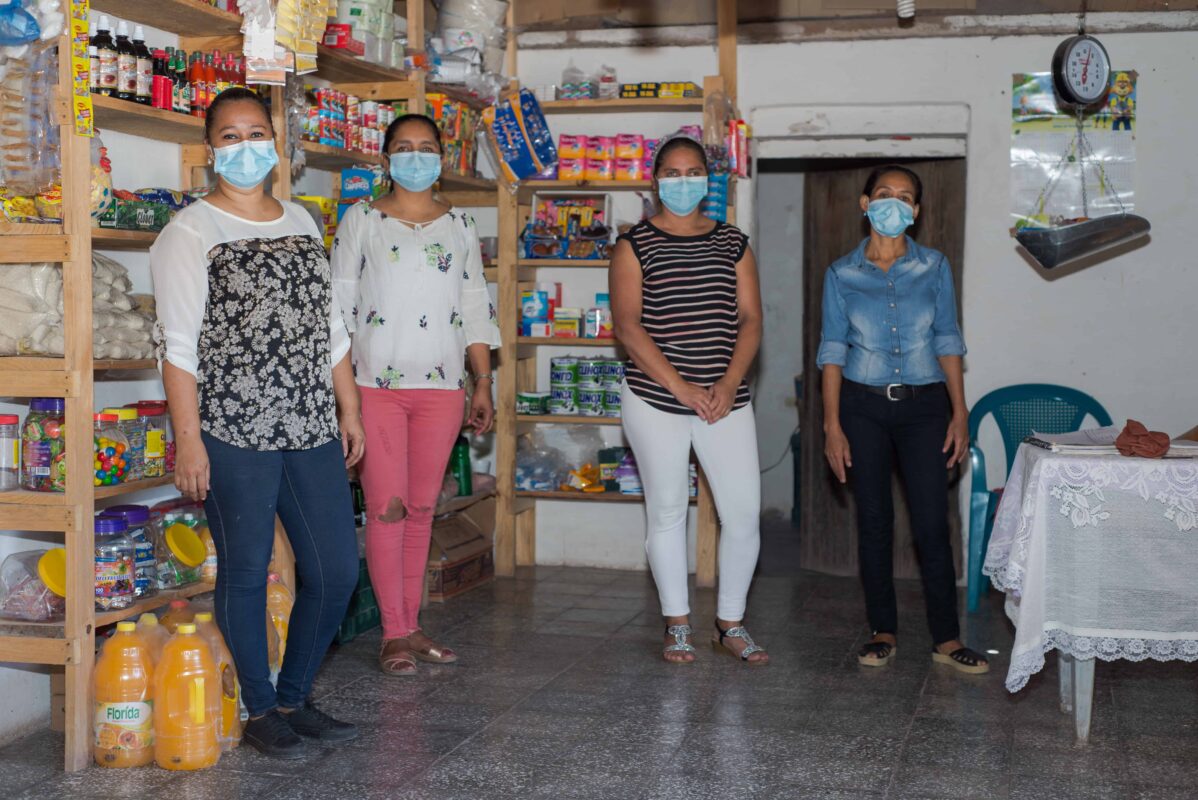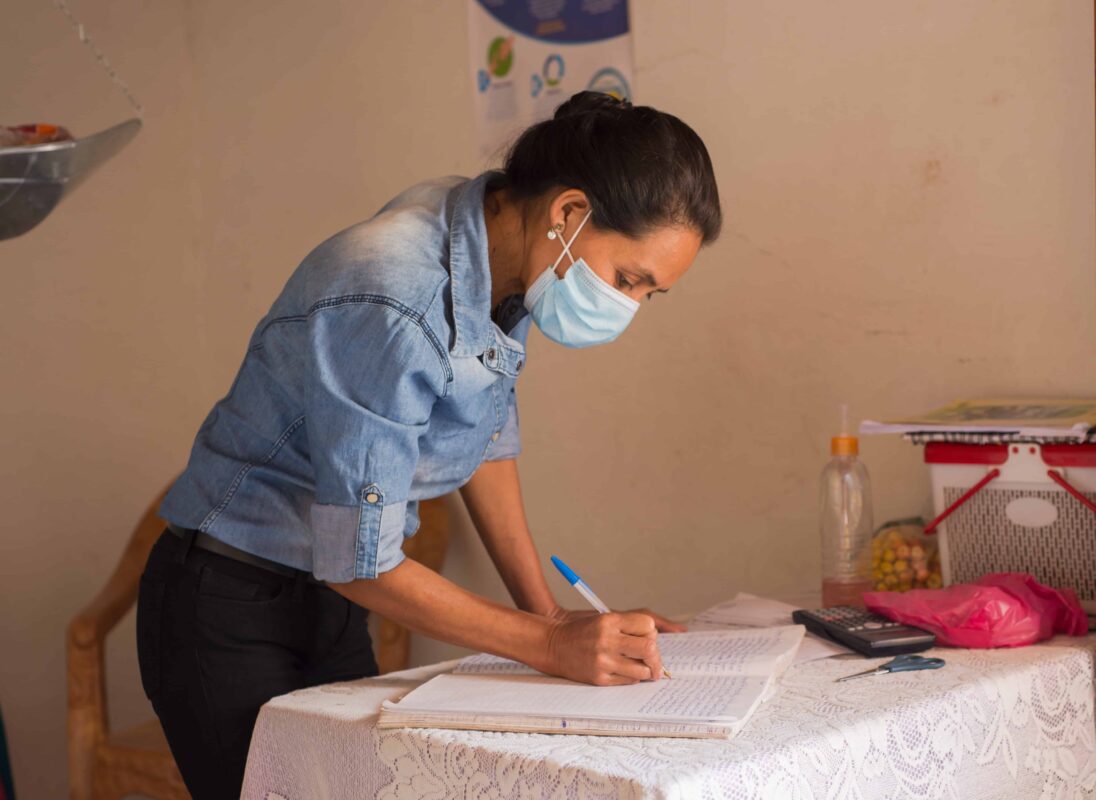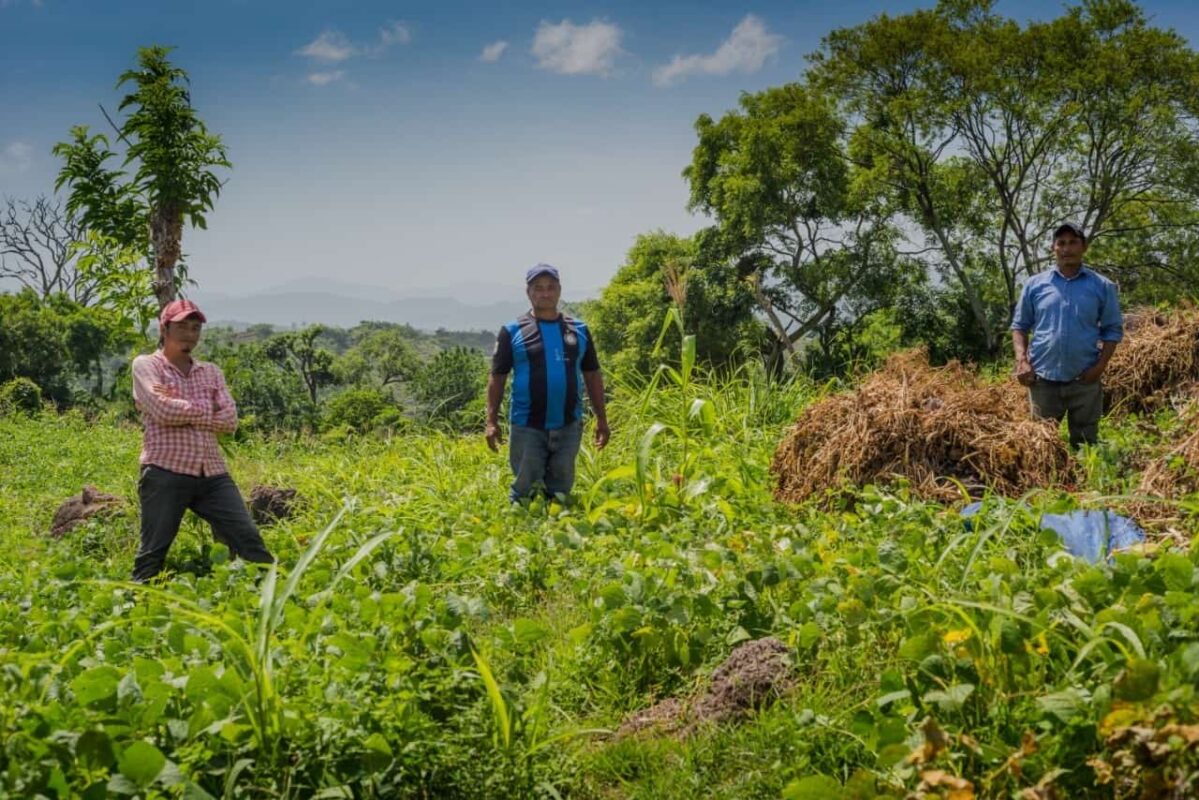
Well before dawn, Sulma Sánchez is awake and on her way to open her small grocery store in San Antonio de Flores, a town in El Paraíso, Honduras. She manages the “tienda” with three other women from her community, who alternate working half-day shifts and sharing responsibilities.
The store was hardly a year old when COVID-19 hit, and the ensuing state-imposed curfews and safety measures caused the women to worry about their business’s survival. But Sánchez says that despite their fears, the pandemic offered an unexpected opportunity for growth.
“Despite the pandemic, we’ve grown to not only sell basic goods, but through our initiative we are now selling bottled water, personal hygiene products like shampoo, deodorants, cream and bio security products likes hand sanitizer and masks,” Sánchez says.
The store remained stable through the height of the quarantine in part due to support from ACS-PROSASUR’s microenterprise support initiative, which offers technical assistance, financial planning and in-kind donations to small enterprises in the region. Funded by both the World Bank and the Honduras Strategic Investment Office (INVEST-H), ACS-PROSASUR is part of the broader Dry Corridor Alliance project. The project addresses water scarcity, hygiene, child under-nutrition and rural livelihoods, aiming to lift 50,000 families out of extreme poverty by improving agricultural growing practices, offering health education and business support, among other techniques.

In 2019, ACS-PROSASUR provided initial products and equipment to Sánchez and her three partners, along with financial planning and assistance. While the project’s core focus is to alleviate poverty through agricultural support, it targets 250 households that don’t have access to land by providing skills development workshops and entrepreneurship trainings.
“This helped us learn a lot of things, the project gave us an economic boost to help start our micro-enterprise,” says Suyapa Montoya, one of the women working in the store. “We’ve learned how to manage a micro-enterprise.”
Rural Honduras is strained by lack of employment, and women have fewer opportunities than men to earn viable incomes and access certain jobs. For these four women and their families, opening their store was a big boost.
Montoya says she had never held a formal job before joining her colleagues to open the business. Like many women in the region, she dedicated herself to raising her two kids. With this opportunity, she now has greater economic agency in her household.
“For the store, I hope we can grow and convert it into a supply warehouse,” she says. “For my family, I hope I can improve our economic situation.”

The Dry Corridor is receiving more and more attention, both from the international community and on a national level, as the visit to the region by Honduras’s president in September testifies. The lack of job opportunities in this region forces many to migrate and leave the country in search of jobs elsewhere. As climate change and persistent drought continue to make agricultural livelihoods riskier, the Dry Corridor’s main source of income, interventions with holistic approaches to gender equity, sustainable farming techniques and economic empowerment will become increasingly urgent.
“Thanks for ACS-PROSASUR for this support, because in these parts there aren’t many sources of work for us,” said Sánchez. “This activity is an alternative so that we can avoid emigrating to other places and leaving our families.”